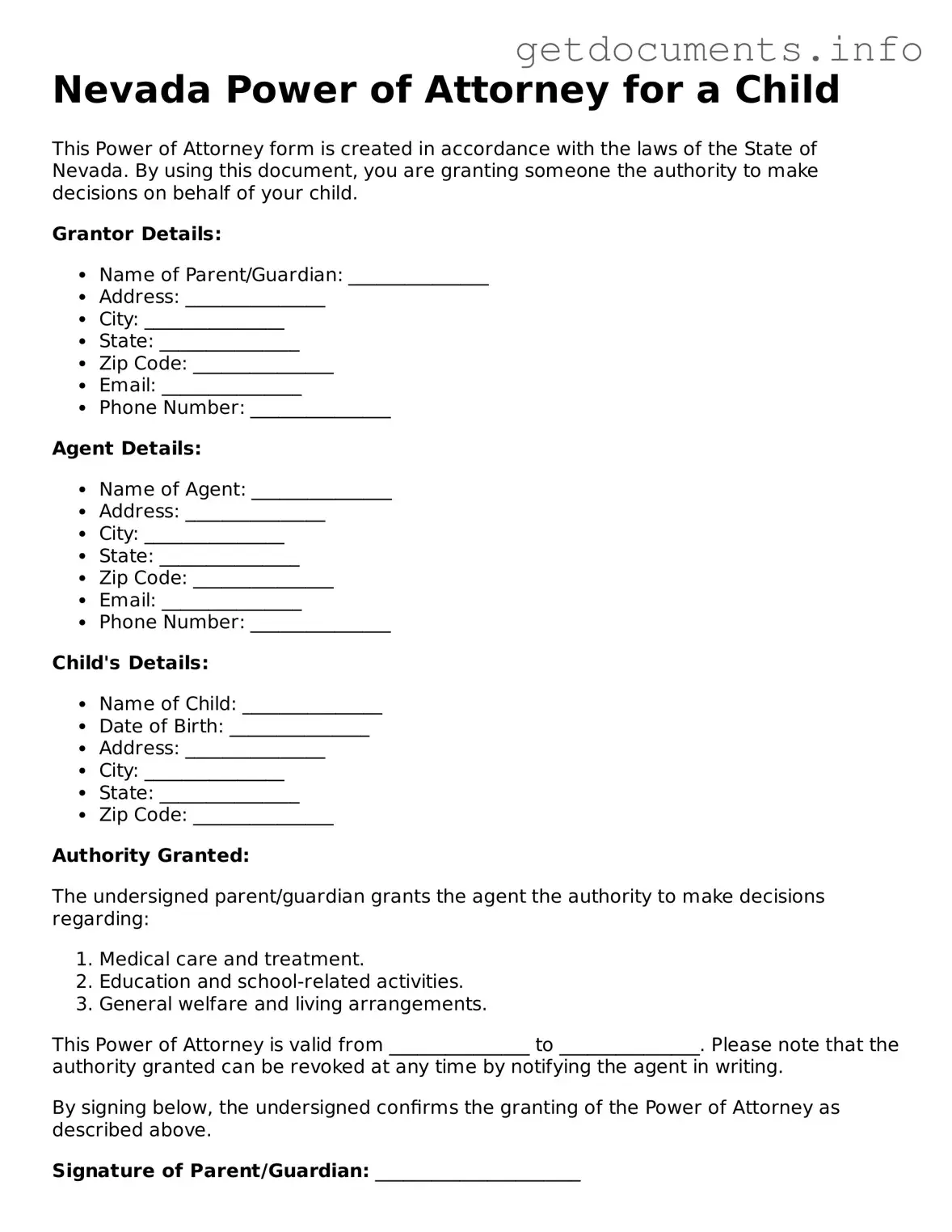Free Power of Attorney for a Child Template for Nevada
The Nevada Power of Attorney for a Child form allows a parent or legal guardian to designate another individual to make decisions on behalf of their child. This legal document ensures that the child's needs are met in the absence of the parent or guardian. For those looking to complete this important form, click the button below to get started.
Access Power of Attorney for a Child Editor

Free Power of Attorney for a Child Template for Nevada
Access Power of Attorney for a Child Editor
Got places to be? Complete the form fast
Fill out Power of Attorney for a Child online and avoid printing or scanning.
Access Power of Attorney for a Child Editor
or
⇩ PDF File
